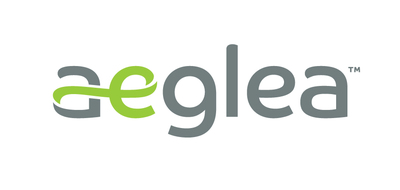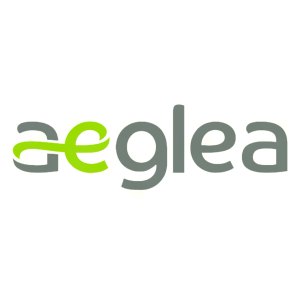Aeglea BioTherapeutics Announces Presentation of Seven Abstracts at ICIEM 2021 Including Oral Presentation of PEACE Study Baseline Characteristics
Aeglea BioTherapeutics (Nasdaq: AGLE) announced the presentation of seven abstracts at the 14th International Congress of Inborn Errors of Metabolism (ICIEM) from November 21-23, 2021. The abstracts focus on Arginase 1 Deficiency (ARG1-D) and emphasize the urgent need for enhanced disease awareness, diagnosis, and improved treatments. Key highlights include data setting the stage for the pivotal Phase 3 PEACE study, where topline results are expected in December. Presentations showcase patient characteristics, the impact of high arginine levels, and the deficiencies in current treatments.
- Seven abstracts showcasing significant research on Arginase 1 Deficiency presented at ICIEM.
- Topline data from the pivotal Phase 3 PEACE trial expected in December, indicating progress in clinical studies.
- Pegzilarginase demonstrated the potential to lower plasma arginine levels effectively, addressing a significant unmet medical need.
- Current treatment standards for ARG1-D remain inadequate, failing to control plasma arginine levels.
- Patient case studies highlight the challenges and limitations of existing therapies, showing ongoing disease progression.
Insights
Analyzing...
AUSTIN, Texas, Nov. 4, 2021 /PRNewswire/ -- Aeglea BioTherapeutics, Inc. (Nasdaq: AGLE), a clinical-stage biotechnology company developing a new generation of human enzyme therapeutics to benefit people with rare metabolic diseases, today announced that seven abstracts will be presented at the 14th International Congress of Inborn Errors of Metabolism (ICIEM) 2021 being held November 21-23, 2021. The series of abstracts illustrate the building interest and knowledge around the clinical impact of Arginase 1 Deficiency (ARG1-D), the importance of increased disease awareness to drive more rapid and accurate diagnosis and the need for improved treatments given the significant limitations of the current standard of care. The data will be presented at ICIEM in advance of the topline data readout for the pivotal Phase 3 PEACE (Pegzilarginase Effect on Arginase 1 Deficiency Clinical Endpoints) study expected in December.
Key highlights include the first presentation of the baseline characteristics of patients participating in the PEACE study (Enns et al), a growing body of evidence that implicates high arginine as the primary driver of disease pathology (Diaz et al), and several individual patient case studies that reveal the long-term challenges faced by patients with ARG1-D from diagnosis to death. Taken together, the presentations at ICIEM emphasize the need for therapies that reduce and maintain control of plasma arginine levels in patients with ARG1-D.
"We are extremely pleased to have such a strong presence at ICIEM this year. This collection of abstracts provides a clear framework for understanding the devastating impact of ARG1-D and the challenges diagnosing and treating patients with this condition," said Eric Bradford, M.D., M.B.A., chief development officer at Aeglea. "The long-term studies of individual patients and other presentations, which highlight the role of arginine and define the hallmarks of the disease, tell a compelling story about the unmet need, the importance of managing plasma arginine levels and the potential advance that pegzilarginase represents. In addition, the presentation of the baseline characteristics at ICIEM sets the stage for the topline results from PEACE, which will be the first controlled study of an investigative therapy for this progressive and debilitating disorder."
Highlighted Presentations from ICIEM
Title: Patient characteristics in the pivotal Phase 3 PEACE trial of pegzilarginase human enzyme therapy for Arginase 1 Deficiency
Abstract Number: 453
Oral Presentation Session: Novel Therapeutics/Mechanisms
Presentation Date and Time: November 22, 3:15-3:30pm AEDT
Presenter: Gregory Enns, Stanford University School of Medicine
Summary: Thirty-two patients in the PEACE Phase 3 study represent the largest well characterized ARG1-D trial cohort to date. The demographic and disease features of the cohort are generally consistent with insights from the previous Phase 1/2 cohort and published case series, with markedly elevated plasma arginine (despite treatment with standard of care), spasticity, seizures, and mobility deficits.
Highlights include:
- Median plasma arginine was 407 µM, which was similar to baseline levels observed in the Phase 1/2 study of pegzilarginase (median 389 µM)
- Sixty-six percent of randomized patients had a history of spasticity, including
38% who had moderate-to-severe spasticity - Mean age of participants was 11 years old (standard deviation ±6.5) and the age range was 2-29 years old
- Forty-four percent of patients were classified as Gross Motor Function Classification System (GFMCS) Level 1 and
56% were GMFCS Level 2 or greater (higher classification level indicates more significant functional impairment) - Patients demonstrated a baseline deficit on mobility assessments including:
- Eighty-four percent on the Gross Motor Function Measure (GMFM) Part E (walking, running and jumping), with deficit defined as a score <68 out of a maximum of 72
- Eighty-four percent on the 2-minute walk test (2MWT), with deficit defined as being in the bottom 15th percentile using age- and sex-based criteria
Title: Arginine: the key driver of pathophysiology and progression of Arginase 1 Deficiency
Abstract Number: 118
Presenter: George Diaz, Icahn School of Medicine at Mount Sinai
Summary: Available evidence implicates high arginine as the primary driver of pathology and progression, and emphasizes the need for sustained reduction of arginine levels in patients with ARG1-D.
- High plasma arginine is associated with progressive spasticity, intellectual disability, developmental delay and seizures
- Severe dietary protein restriction lowers arginine and improves outcomes however over time compliance diminishes and all patients deteriorate
Other Presentations
Title: Gait improvement in pegzilarginase-treated patients with Arginase 1 Deficiency: a blinded kinematic analysis
Abstract Number: 65
Presenter: Nathan Foreman, RehabMetrics, LLC
Summary: In a blinded post hoc analysis of patient videos from a Phase 1/2 trial, pegzilarginase-treated patients performing the 6-minute walk test and were evaluated by independent therapist assessors for changes in GMFM at baseline, week 24 and week 48. Pegzilarginase treatment of ARG1-D resulted in improvements in gait, mobility and spasticity.
Title: Diagnosis and long-term treatment of Arginase 1 Deficiency
Abstract Number: 62
Presenter: Barbara Burton, Lurie Children's Hospital
Summary: This single patient case study illustrates the high unmet need for early and effective treatment of ARG1-D. Progressive impairment was established before diagnosis and standard of care management has been inadequate to control hyperargininemia (high plasma arginine).
Title: Management and progression of Arginase 1 Deficiency over 2 decades of follow-up
Abstract Number: 126
Presenter: Deborah Marsden, Boston Children's Hospital
Summary: This single patient case study illustrates the importance of high arginine in chronic and acute ARG1-D manifestations and the limitations of available treatment (which have been administered for more than two decades) and does not control arginine or prevent disease progression.
Title: Diagnosis of Arginase 1 Deficiency in a patient with cerebral palsy
Abstract Number: 63
Presenter: Laura Farach, University of Texas Health Science Center at Houston
Summary: This single patient case history highlights challenges in diagnosis of ARG1-D due to similar clinical manifestations as cerebral palsy. Subsequent delays in treatment allow for disease progression and call for newborn biochemical workup.
Title: Arginase 1 Deficiency presenting with clotting abnormalities
Abstract Number: 116
Presenter: Laura Farach, University of Texas Health Science Center at Houston
Summary: This single patient case study highlights the challenges of timely ARG1-D diagnosis and limitations of standard of care treatment.
About Pegzilarginase in Arginase 1 Deficiency
Pegzilarginase is a novel recombinant human enzyme, which has been shown to rapidly and sustainably lower levels of the amino acid arginine in plasma. Aeglea is developing pegzilarginase for the treatment of people with Arginase 1 Deficiency (ARG1-D), a rare debilitating and progressive disease characterized by the accumulation of arginine. ARG1-D presents in early childhood and patients experience spasticity, seizures, developmental delay, intellectual disability and early mortality. Current standard of care includes dietary protein restriction and essential amino acid supplementation which does not adequately lower plasma arginine or prevent progression of neurologic manifestations.
Aeglea's Phase 1/2 and Phase 2 open-label extension (OLE) data for pegzilarginase in people with ARG1-D demonstrated clinical improvements and sustained lowering of plasma arginine. The company's ongoing single, global pivotal Phase 3 PEACE trial is designed to assess the effects of treatment with pegzilarginase versus placebo over 24 weeks with a primary endpoint of plasma arginine reduction. Pegzilarginase has received multiple regulatory designations, including Rare Pediatric Disease, Breakthrough Therapy, Fast Track and Orphan Drug Designations from the U.S. Food and Drug Administration as well as Orphan Drug Designation from the European Medicines Agency.
About Aeglea BioTherapeutics
Aeglea BioTherapeutics is a clinical-stage biotechnology company redefining the potential of human enzyme therapeutics to benefit people with rare metabolic diseases with limited treatment options. Aeglea's lead product candidate, pegzilarginase, is in a pivotal Phase 3 trial for the treatment of Arginase 1 Deficiency and has received both Rare Pediatric Disease and Breakthrough Therapy Designations. The company began dosing patients in a Phase 1/2 clinical trial of AGLE-177 for the treatment of Homocystinuria in June 2021. AGLE-177 has also been granted Rare Pediatric Disease Designation. Aeglea has an active discovery platform focused on engineering small changes in human enzymes to have a big impact on the lives of patients and their families. For more information, please visit http://aeglea.com.
Safe Harbor / Forward Looking Statements
This press release contains "forward-looking" statements within the meaning of the safe harbor provisions of the U.S. Private Securities Litigation Reform Act of 1995. Forward-looking statements can be identified by words such as: "anticipate," "intend," "plan," "goal," "seek," "believe," "project," "estimate," "expect," "strategy," "future," "likely," "may," "should," "will" and similar references to future periods. These statements are subject to numerous risks and uncertainties that could cause actual results to differ materially from what we expect. Examples of forward-looking statements include, among others, statements we make regarding our ability to obtain regulatory approval for, and commercialize, pegzilarginase, recognize milestone and royalty payments from our agreement with Immedica, the timing and success of our clinical trials and related data, the timing and expectations for regulatory submissions and approvals, timing and results of meetings with regulators, the timing of announcements and updates relating to our clinical trials and related data, our ability to enroll patients into our clinical trials, the expected impact of the COVID-19 pandemic on our operations and clinical trials, success in our collaborations, our cash forecasts, the potential addressable markets of our product candidates and the potential therapeutic benefits and economic value of our lead product candidate or other product candidates. Further information on potential risk factors that could affect our business and financial results are detailed in our Annual Report on Form 10-K for the year ended December 31, 2020 and our most recent Quarterly Report on Form 10-Q for the quarter ended September 30, 2021 filed with the Securities and Exchange Commission (SEC), and other reports as filed with the SEC. We undertake no obligation to publicly update any forward-looking statement, whether written or oral, that may be made from time to time, whether as a result of new information, future developments or otherwise.
![]() View original content to download multimedia:https://www.prnewswire.com/news-releases/aeglea-biotherapeutics-announces-presentation-of-seven-abstracts-at-iciem-2021-including-oral-presentation-of-peace-study-baseline-characteristics-301416021.html
View original content to download multimedia:https://www.prnewswire.com/news-releases/aeglea-biotherapeutics-announces-presentation-of-seven-abstracts-at-iciem-2021-including-oral-presentation-of-peace-study-baseline-characteristics-301416021.html
SOURCE Aeglea BioTherapeutics, Inc.








